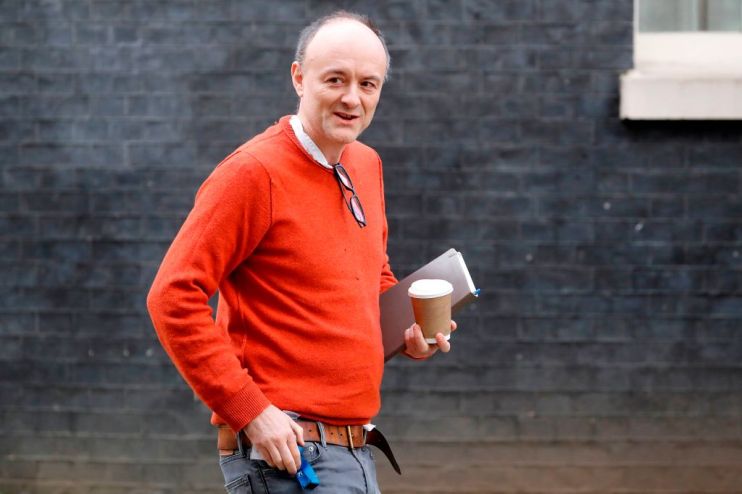Guru or Svengali? Dominic Cummings is at risk of becoming the story, not the adviser

Civil service reform does not usually make headline news — unless, it seems, it is proposed by Dominic Cummings.
The Prime Minister’s adviser is on a mission to shake up Whitehall. He’s determined to change how it makes decisions and bring in “weirdos and misfits” with expertise in data science and IT.
Classic Dom. He is an iconoclast, dismissing “Oxbridge English graduates who chat about Lacan” and trumpeting an age-old criticism of the civil service: that it is dominated by public school arts graduates who are confident bluffers but lack in-depth technical knowledge.
But leave aside for a moment the question of whether he’s right or not, and consider instead how the idea enhances Brand Cummings. This is a man who cannot see a sacred cow without tasting the umami of a good sirloin.
Cummings is a combination of court jester and devil’s advocate, forcing those in power to think more deeply and in new ways about the challenges they face.
Such gadflies need the latitude to say the unsayable. It is inevitable that some of their ideas will be terrible, ill-conceived or impractical (like moving the House of Lords to York). But, so the theory goes, they will produce the occasional pearl.
There is a danger in, however. The freedom afforded to the guru can be abused. Latitude can be stretched and liberties taken. Soon, if you are unwary, you no longer have a trusted adviser. Instead, you have a Svengali: a puppet-master pulling the leader’s strings, unfettered, unaccountable, and out of control.
This is already a narrative Cummings’ enemies have explored. They take Johnson’s chaotic, bumbling persona (which actually conceals a sharp mind and a ruthless will to power) and imagine the PM as a front man, a pawn, reassuring and amusing while Cummings schemes behind the Number 10 door.
If the adviser becomes the story, it presents a dilemma. Is he an unwelcome distraction, or a useful lightning rod? Mediaeval monarchs certainly relied on the latter. Rebellions were framed as reactions against “evil counsellors”, never the king himself. Cardinal Wolsey fell because he could not deliver Henry VIII the marriage annulment he craved. The Earl of Strafford lost his head as an offering from Charles I to an angry parliament.
But advisers should be wary of consuming all the oxygen. How often was the story of the Blair government framed around the activities of Alastair Campbell and Peter Mandelson? How many of Margaret Thatcher’s relationships were soured because of suspicion of Charles Powell or Alan Walters?
Yesterday, the government’s shift towards backing HS2 was framed in the media around whether this marked a defeat for Cummings, who has been sceptical of the project. The adviser, not the policy, was the story. Cummings is also credited (or blamed) with the decision this week to defy the US and allow the Chinese firm Huawei to build elements of the UK’s 5G network.
Ultimately, a government is judged on its actions, and its results. Anything which takes away from that goal is a misstep. Which side will Cummings come down on? I’d say the man himself hasn’t yet decided.
Main image credit: Getty